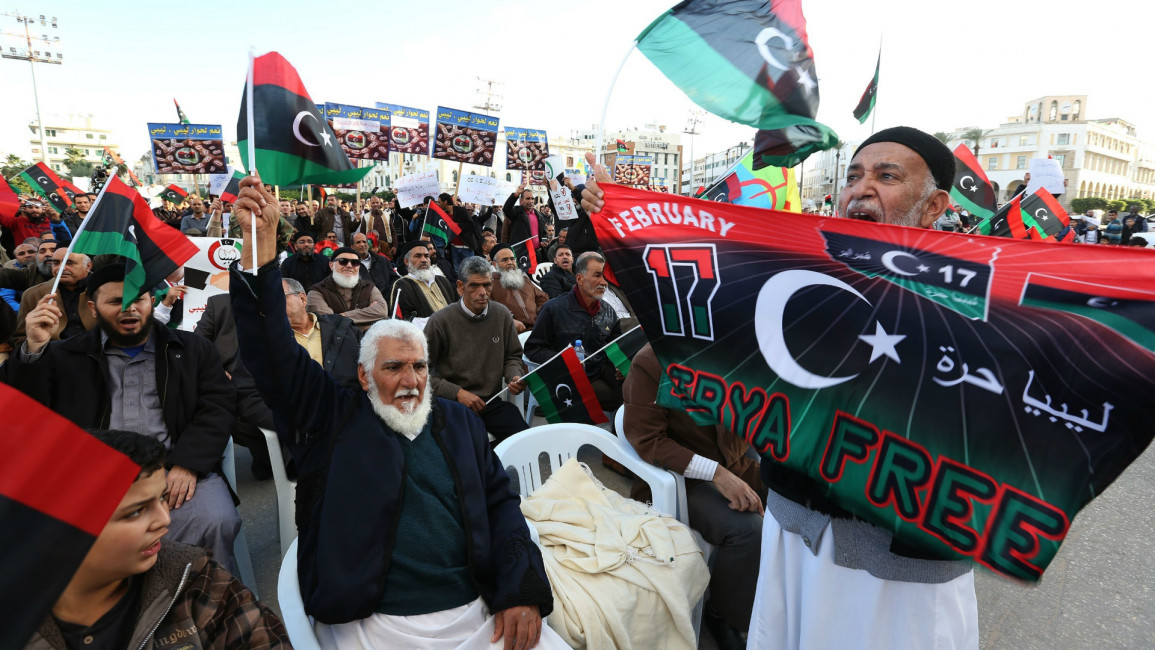
Libya and human insecurity
Five years of turmoil has plagued Libya, post-Gadaffi.
The fall of the dictator unleashed the wrath of rival militias vying for power, tearing the country apart.
The priority for the average Libyan, however, remains taking care of basic needs - general health, food, shelter and energy. But meeting these priorities is becoming increasingly challenging, as movement restrictions, violence and foreign partners and global economics interplay.
Libya used to hold a middle-income status, with its main source of GDP generated from oil revenues and industries reliant on the oil industry, but its stock has fallen amid political instability and rising terrorism.
Disruption to oil production and export, and the decline in oil prices has harmed its economy and until a new constitution is signed any plans to diversify its non-oil economy is on hold. GDP is now half of what it used to be and the government budget, which ultimately provides infrastructure and support to its citizens, has been badly hit.
 |
With the targeting of civilian areas and lack of respect for protected sites such as hospitals, many civil society organisations have deserted the country |  |
But it is not just the faltering economy that is having an impact on Libyans - the impact of conflict, in which all sides have committed war crimes, has meant that civilians are deeply affected and access to the essential requirements of life is becoming increasingly difficult.
With the targeting of civilian areas and lack of respect for protected sites such as hospitals, many civil society organisations have deserted the country. The ramping up of fighting in 2014 also saw community networks and social welfare systems dismantled.
| What's been going on in Libya? | |
|
The General National Congress was the Islamist-led elected body ruling Libya for two years following Gaddafi's ousting and death. After its 18-month deadline to form a new constitution passed in January 2014, the body resolved to extend its mandate. |
Those hardest hit, an estimated 3 million, are now dependent on the UN's efforts in appealing for medical care, education and protection. But the UN has barely made a dent in its target, making access to these essentials harder for all Libyans - particularly internally displaced persons, the most vulnerable of those affected.
Access to food has been of concern since the beginning of the conflict. Libya has long relied heavily on the import of foodstuffs.
Price hikes due to less availability and with decreasing per capita income means that purchasing power is reduced - conditions that greatly hinder access to food. While the World Food Programme tries to provide access to food within Libya, their targets fall well below what is needed - and even those targets cannot be met due to a crisis in funding.
Food within distribution centres is being consumed without being replenished.
Furthermore, with many areas within Libya being controlled by militias, physical access is a constant challenge and telecommunication issues mean that information between partners cannot be passed in a timely manner.
Services such as telecommunications are hit by the electricity cuts and shortages - a problem that can fuel the abrogation of many economic and social rights - and this now should also be a primary concern.
Power outages can last up to 10 hours per day and affect daily life, as well as the economy at large.
Violence near power plants has driven away foreign partners, and plants face fuel shortages due to delapidated oil production facilities.
The lack of electricity has created great stress and anger throughout the country - in one district, Beida, the minister responsible, Abdullah Thinni, was given 24 hours to leave town.
Without power, there is a real threat to people's ability to continue their livelihoods, education and industry, exemplified in the closure of the Libyan Iron and Steel Company (LISCO).
 |
This dire situation is an affront to human dignity |  |
Ongoing indiscriminate shelling means that residential areas are being hit. Air raids are not targeted, as per international law, and as a result the health demands of civilian casualties place further stress on an already weakened healthcare system.
This is further exacerbated by restrictions on movement, so those medical centres still in operation - those that have not closed or bombed - are under immense pressure. Shortages in medicine and medical personnel mean that serious illnesses and diseases will continue to rise.
This dire situation is an affront to human dignity, and has left Libyans without the support it needs from the international community and civil society. What's more, the situation will only get worse if the conflict is left to continue.
Many feel their fate is pinned to the formation of a new 18-member unity government made up from the various factions. However, efforts to address the humanitarian situation should not depend on reconciliation.
Immediate efforts need to be made to halt the immediate impact on non-combatant Libyans' safety and to restore supplies for their immediate needs.
Sophia Akram is a researcher and communications professional with a special interest in human rights particularly across the Middle East. Follow her on Twitter: @mssophiaakram
Opinions expressed in this article remain those of the author and do not necessarily represent those of The New Arab, its editorial board or staff.




